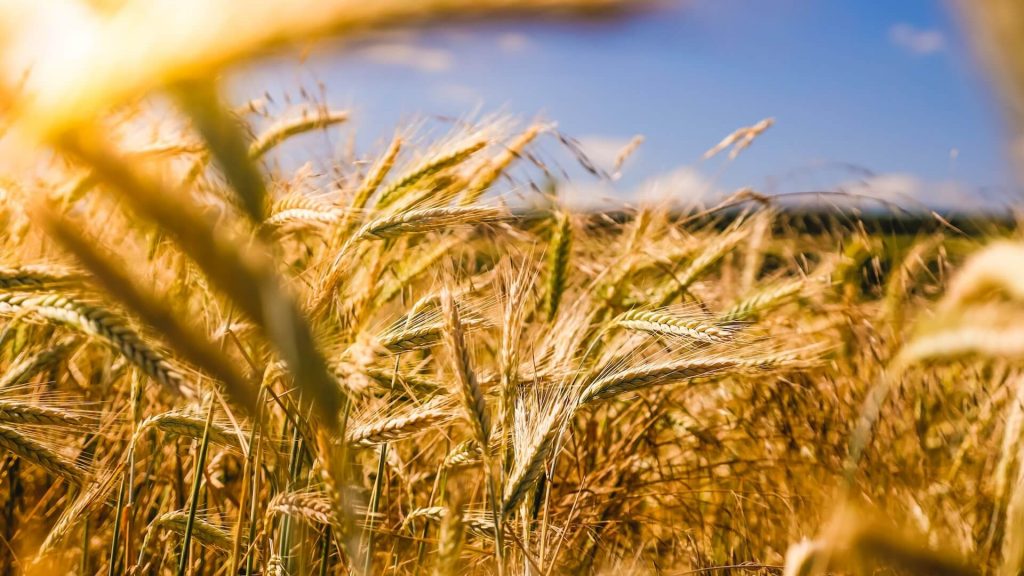As our global population continues to swell and the consequences of climate change loom larger, the trajectory of agriculture has reached a critical juncture. Conventional farming methods have long been associated with ecological harm and resource depletion, raising concerns about the planet’s ability to sustain us. However, there is reason for optimism – innovations in agriculture are ushering in a new era that promises sustainable and thriving farms.
In this article, we delve into the exciting developments that are reshaping agriculture. From groundbreaking technologies to ingenious farming techniques, these innovations are not only addressing environmental concerns but also ensuring food security for a growing global population. Let’s explore the dynamic world of sustainable agriculture and discover how these innovations are reshaping the future of farming.
Smart Farming
Innovations in agriculture have given rise to a digital revolution in farming, often referred to as “smart farming”. This revolution entails the integration of cutting-edge technologies such as the Internet of Things (IoT), artificial intelligence (AI), and big data analytics into traditional farming practices. By utilizing these technologies, farmers gain invaluable insights into various aspects of crop management, weather patterns, and soil conditions. Smart farming optimizes resource utilization, minimizes waste, and enhances crop yields, thereby increasing the overall sustainability of farming practices.
Vertical Farming
Escalating concerns over the limited availability of arable land have spurred the development of vertical farming. This innovation involves stacking crops in multiple layers, often indoors, using hydroponic or aeroponic systems. Vertical farming offers several notable advantages, including the ability to sustain year-round crop production, minimize the use of pesticides, and drastically reduce water consumption. As a result, vertical farming is gaining prominence, particularly in urban settings where space is at a premium.
Precision Agriculture
Precision agriculture is a practice that leverages technology to enhance the precision of resource application, including water, fertilizers, and pesticides. Key technologies driving this method include drones, GPS systems, and a network of sensors. By applying these resources only where and when needed, precision agriculture minimizes waste, lowers the environmental footprint of farming, and ultimately improves crop quality.
Biological Farming
Biological farming is a time-honored concept that is making a powerful resurgence. This approach involves working in harmony with nature by employing beneficial microorganisms, cover cropping, and reducing synthetic inputs. It not only promotes soil health but also significantly reduces the ecological impact of farming. Biological farming exemplifies a holistic and sustainable approach to agriculture that ensures the long-term health of our ecosystems.
Agroforestry
Agroforestry is a farming technique that blends agriculture and forestry, offering a dynamic approach to land use. In agroforestry, trees are planted alongside traditional crops, allowing for the simultaneous benefits of food production and forest conservation. Agroforestry serves as a powerful strategy to combat deforestation, sequester carbon, and enhance biodiversity, demonstrating how innovations in agriculture can contribute to broader ecological goals.
Aquaponics
Aquaponics is a closed-loop system where fish farming and plant cultivation coexist symbiotically. In this innovative approach, fish waste serves as a nutrient source for plants, while the plants filter the water for the fish. Aquaponics is an exemplar of resource efficiency, as it minimizes water usage, reduces the need for synthetic fertilizers, and simultaneously produces protein-rich fish and fresh vegetables.
Genetic Engineering
Genetic engineering has played a significant role in enhancing crop resistance, yield, and nutritional content. Techniques like CRISPR-Cas9 allow scientists to precisely modify plants to thrive in adverse conditions or even increase their nutritional value. While ethical concerns exist, responsible genetic engineering can be a powerful tool for sustainable agriculture, providing solutions for global food security and resilience in the face of climate change.
Urban Farming
As urbanization accelerates and more of the global population migrates to urban areas, urban farming has gained momentum. Urban farming involves the cultivation of crops within cities, often utilizing rooftop gardens, vacant lots, or community spaces. This approach not only reduces the distance food must travel to reach consumers but also connects people more directly with their food sources, fostering a stronger sense of food security and sustainability.
Sustainable Livestock Farming
Innovations in agriculture are not confined to crops; they extend to the livestock sector as well. Sustainable livestock farming encompasses a range of practices, such as rotational grazing, improved animal nutrition, and more efficient waste management. These strategies reduce the environmental impact of animal agriculture and simultaneously improve the welfare of livestock, addressing key concerns about sustainability and animal welfare.
Farmer Empowerment
The success of innovations in agriculture hinges on the support and empowerment of farmers. Training and education programs, affordable access to technology, and fair pricing are essential components of ensuring that these innovations are widely adopted. Recognizing the pivotal role that farmers play in shaping the future of sustainable agriculture underscores the significance of their empowerment and involvement in this agricultural revolution.
Conclusion
Innovations in agriculture are propelling us toward a future where farming is not just a source of nourishment but also a guardian of the planet. These innovations, from advanced technologies to age-old wisdom, promise to mitigate climate change, reduce the use of harmful chemicals, and bolster global food security. To secure this future, it is imperative for governments, industries, and communities to embrace and invest in these innovations. By adopting new technologies and sustainable practices, we can cultivate a world where agriculture fosters both human prosperity and ecological harmony. The future of farming is brighter than ever, and it is incumbent upon us all to plant the seeds of sustainable agriculture.
